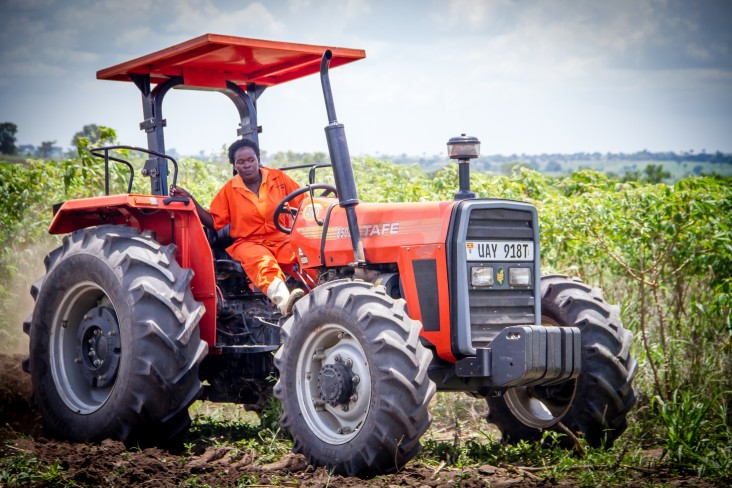Speeches Shim

USAID works to reduce poverty and hunger in Uganda by fostering private and public investment in key growth sectors such as agriculture and energy, while supporting the sustainable use of Uganda’s natural resources. USAID is helping vulnerable people improve their resilience and nutritional status by participating in local and regional markets. As part of the Power Africa initiative, Uganda is a focus country for increasing electricity access through both on- and off-grid solutions. USAID also works to enhance biodiversity conservation, combat wildlife crime and improve climate change adaptation.
AGRICULTURAL PRODUCTIVITY AND FOOD SECURITY
Agriculture contributes significantly to Uganda’s export earnings and provides almost three quarters of national employment. USAID’s efforts—which are closely aligned with the Government of Uganda’s agriculture strategic plans—focus on reducing food insecurity, improving nutrition, and raising household incomes, with an emphasis on connecting youth with opportunities to engage in the agriculture sector.
PRIVATE SECTOR INVESTMENT
Private sector development and improved business, trade and investment climates are important USAID objectives for overall development and poverty reduction. USAID recognizes the importance of an enabling environment for private sector investment and thus engages with the government of Uganda, other development partners, private sector agencies and civil society on fiscal, policy and other regulatory frameworks for private investment.
USAID assists in improving access to finance for the agriculture, energy and health sectors through loan guarantees from the Development Credit Authority and maximizing private sector funds through Global Development Alliances and agriculture private equity funds. We also promote innovations that could refine existing business models and further improve access to finance, such as digital financial services.
BIODIVERSITY CONSERVATION AND CLIMATE CHANGE ADAPTATION
USAID partners with public and private sector institutions, civil society and other stakeholders to conserve and protect Uganda’s biodiversity resources. We do this by increasing benefits to communities through conservation enterprises and establishing community wildlife conservancies, strengthening capacity to mitigate the environmental and social impacts of petroleum exploration and production, establishing a sustainable source of conservation funding, and improving enforcement of wildlife crime. We also partner with academic researchers, farmers, journalists and other stakeholders to improve the capacity of Uganda’s public and private sector institutions to better understand and respond to climate change impacts.
IMPROVING RESILIENCE
In Karamoja and selected refugee-hosting districts, USAID strengthens the resilience of vulnerable households and communities. Rather than treating these vulnerable populations as a perpetual humanitarian caseload, resilience efforts recognize them as a development priority and opportunity. USAID’s efforts focus on implementing nutrition and livelihood development activities and connecting isolated communities to improved health and market systems. Through integrated resilience programming, USAID facilitates inclusive growth while sustainably reducing poverty. USAID develops connections between Karamoja and regional and national markets. In addition, the program connects Karamoja and refugee hosting districts with key enablers such as agricultural extension services, quality seed and fertilizer, financial services, and organized producer networks.


Comment
Make a general inquiry or suggest an improvement.